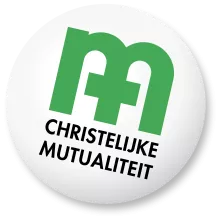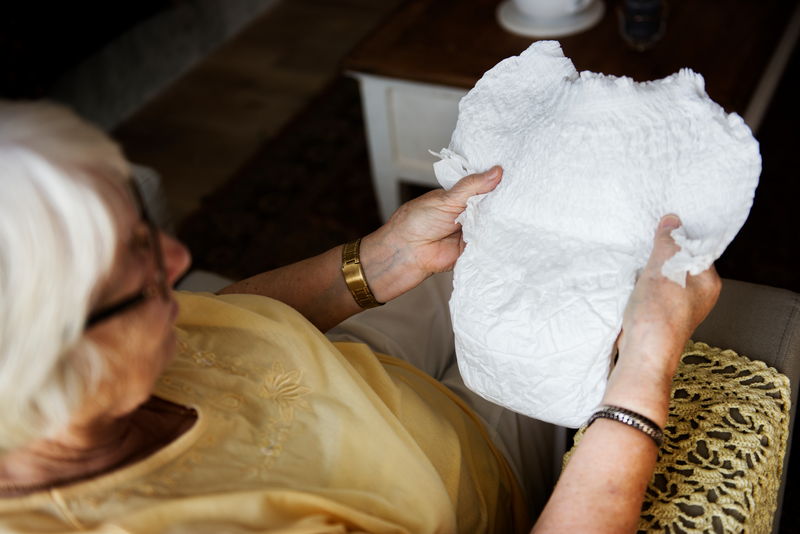Fixed allowance for chronically ill people
Chronically ill people are often confronted with high expenditure on care and assistance.

Despite health insurance, they still have to bear many costs themselves. That is why various fixed reimbursements were gradually introduced, which chronically ill people can combine.
Fixed allowance for palliative care
The fixed allowance for palliative care is a reimbursement of the costs for medication, care and aids required for the home care of palliative patients.
The fixed allowance amounts to 827.99 euros in 2025 and is granted for one month. If the patient continues to meet the conditions after the end, the same sum can be paid out a second time.
Patients who qualify for the fixed allowance for palliative care are also entitled to full reimbursement of the co-payment for home visits by the GP, physiotherapist and home nurse.
Palliative patients
What are the conditions?
Palliative patients who are cared for at home and intend to stay at home during the terminal phase are entitled to the fixed allowance.
In addition, the patient must meet two of the conditions below.
What is the procedure?
- The GP sends a standard form to the advising doctor (CM must receive the form before the date of death).
- CM pays immediately after notification to the advising physician.
Important :
- The fixed allowance can be granted for a second month if the patient continues to meet the conditions after the first thirty days.
- The amount remains fully acquired, even if the patient dies within thirty days.
- The reimbursement can be combined with the one-off fixed reimbursement that a multidisciplinary guidance team for palliative care can receive from health insurance.
In addition, a patient who is entitled to the fixed allowance for palliative care does not have to pay co-payments for home visits by the GP and benefits in kind from physiotherapists and home nurses. - There is no right to the fixed allowance for palliative care when admitted to a:
- general or psychiatric hospital;
- rest and care home (RVT);
- rest home for the elderly (ROB);
- psychiatric care home (PVT);
- initiative for sheltered housing or certain rehabilitation centers.
Fixed allowance for incontinence
The fixed allowance for incontinence is an annual reimbursement of the costs of incontinence materials for people requiring serious care.
In 2025 the fixed amount will be 630.92 euros. The amount is linked to the health index and is adjusted annually on January 1.
Before receiving payment again, at least twelve months must have passed since the previous award decision.
What are the conditions?
The fixed allowance is paid to people in serious need of care who meet three conditions .
- Be entitled to fixed allowance type B or C for home care for at least four of the last twelve months.
It is sufficient that the advising doctor agrees to charging a flat rate B or C based on the score on the KATZ scale. Effective use of home nursing is not a requirement.
To calculate the four months, the periods with entitlement to fixed allowance B and those with entitlement to fixed allowance C are combined. The four months do not necessarily have to constitute a consecutive period. - Have a score of 3 or 4 on the KATZ scale for the criterion 'Incontinence'.
In concrete terms, this means that the person is incontinent of urine and/or bowel movements. - Be alive on the last day of the twelve-month reference period.
What is the procedure?
- The fixed allowance for incontinence is paid automatically by CM, but only to members who it knows meet the conditions.
- Many people with incontinence are cared for at home by informal caregivers, without a nurse coming to their home. To claim the fixed allowance for incontinence, it is important to pass on their details to CM.
- The application must be repeated annually .
Important:
A beneficiary may not stay in a care facility for which the health insurance provides reimbursement on the last day of the four-month period.
One is therefore not entitled to the fixed allowance for incontinence when admitted to a:
- general or psychiatric hospital;
- rest and care home (RVT);
- rest home for the elderly (ROB);
- psychiatric care home (PVT);
- initiative for sheltered housing or certain rehabilitation centers.
In contrast, admission to an institution of the Flemish Agency for Persons with Disabilities does not pose a problem .
Fixed allowance for PVS patients
The fixed allowance for PVS patients ensures reimbursement of the costs of medication, care and aids required for the home care of PVS patients
The fixed amount will amount to a maximum of 10,546.44 euros per year in 2025. The amount is linked to the health index and is adjusted annually on January 1.
Payment is made by CM:
- for the month of return home and the five subsequent months, it pays half to the patient;
- afterwards it pays a monthly amount corresponding to 1/12 of the annual repayment.
What are the conditions?
Patients in a coma who are (or will be) cared for at home or in a day care center (CDV) are entitled to the fixed allowance for PVS patients.
These patients have suffered serious brain damage (after skull trauma, cardiac arrest, vein bleeding, etc.) as a result of which they fell into a coma and where recovery techniques could not improve the condition. A distinction is made between two situations:
What is the procedure?
- The responsible doctor from a recognized expert hospital center sends a standard form to the CM's consulting physician. This confirms that the patient meets the conditions (there is an exhaustive list of recognized hospital centers).
- A copy of this form will be provided to the GP .
This medical notification can be submitted at the earliest one month before the patient returns home and at the latest before the end of the fifth month after the month of return.
Important :
- The fixed allowance is no longer due from the second full calendar month in which the person concerned continuously resides in a hospital (or equivalent), ROB, RVT or PVT.
- The fixed allowance is not paid upon admission to:
- general or psychiatric hospital;
- rest and care home (RVT);
- rest home for the elderly (ROB);
- psychiatric care home (PVT);
- initiative for sheltered housing or certain rehabilitation centers;
- institution of the Flemish Agency for Persons with Disabilities are excluded.
- Patients who are entitled to the fixed allowance for PVS patients are also entitled to multidisciplinary consultation through the integrated home care services (GDTs), to draw up a care plan in the context of the return to and maintenance in the home environment. A fixed allowance is provided for this four times a year to reimburse the participants in the consultations.
Healthcare fixed allowance
The healthcare fixed allowance is an annual reimbursement for chronically ill people who are highly dependent on others because of their illness and therefore have high healthcare expenditure.
The amount is linked to the health index and is adjusted annually on January 1. The annual amount varies depending on the degree of loss of self-reliance and in 2025 will be:
- 383.96 euros;
- 575.98 euros;
- 767.94 euros.
What are the conditions?
To be entitled to the healthcare fixed allowance, chronically ill people must meet two conditions:
What is the procedure?
- The healthcare fixed allowance is paid automatically by CM, but only to members who it knows meet the conditions.
- There are no problems with regard to the co-payment condition. After all, CM has the necessary information to check whether the limit amount has been reached.
- CM, on the other hand, is not always aware of the loss of self-reliance. This is the case if the sick person meets the conditions but no services are provided (e.g. home care) or no reimbursement is paid (e.g. integration allowance). In these situations it is important that someone takes the necessary steps that allow CM to detect the sick person as entitled to the healthcare fixed allowance. This can be done, for example, by submitting an application for an integration allowance.
Also go to...
Information for patients:

